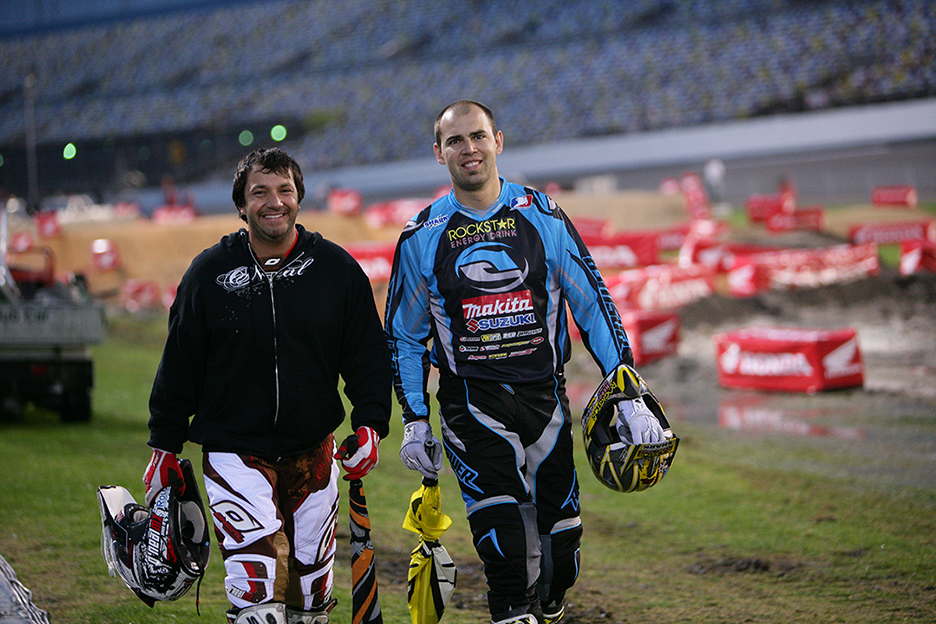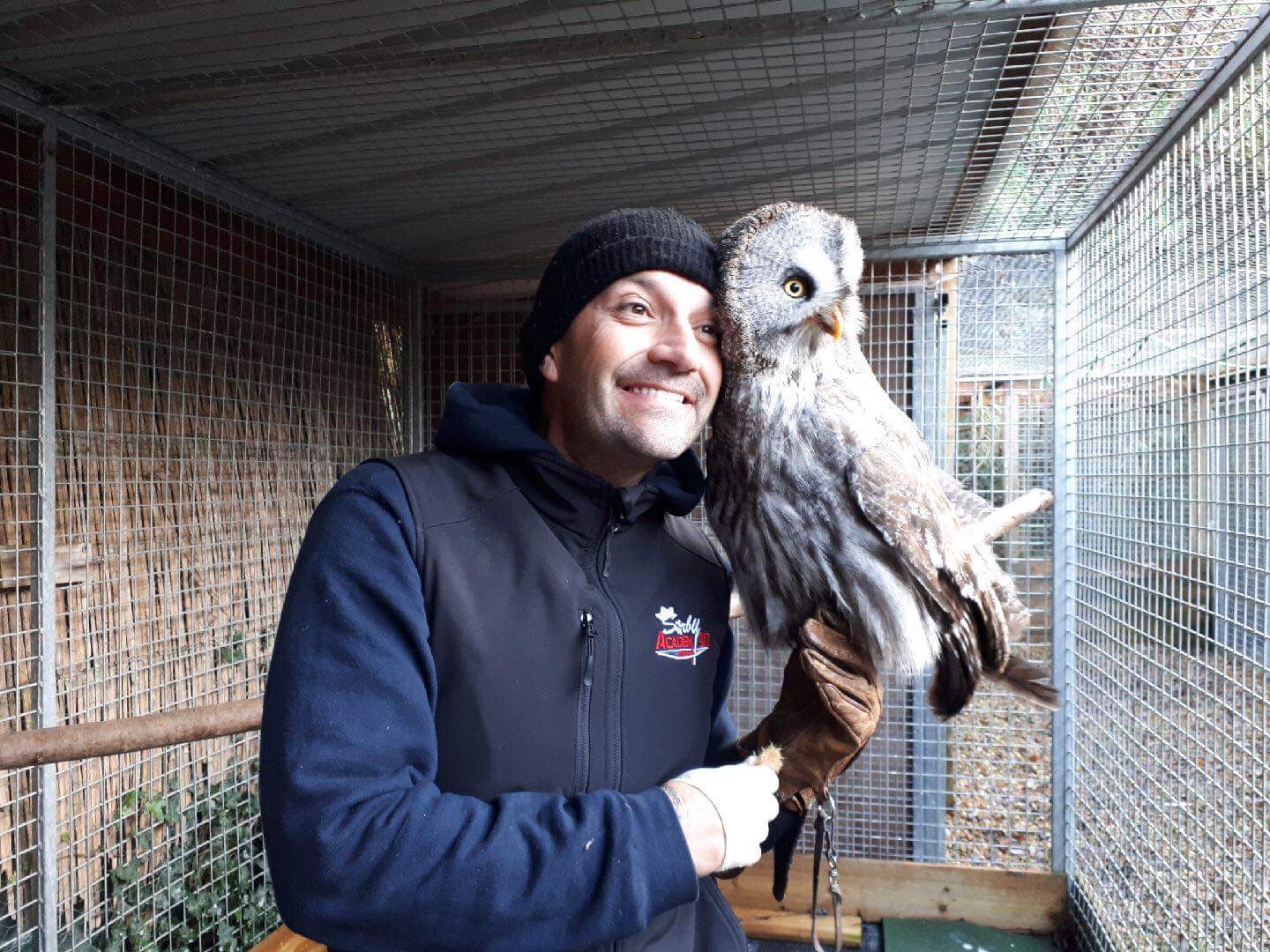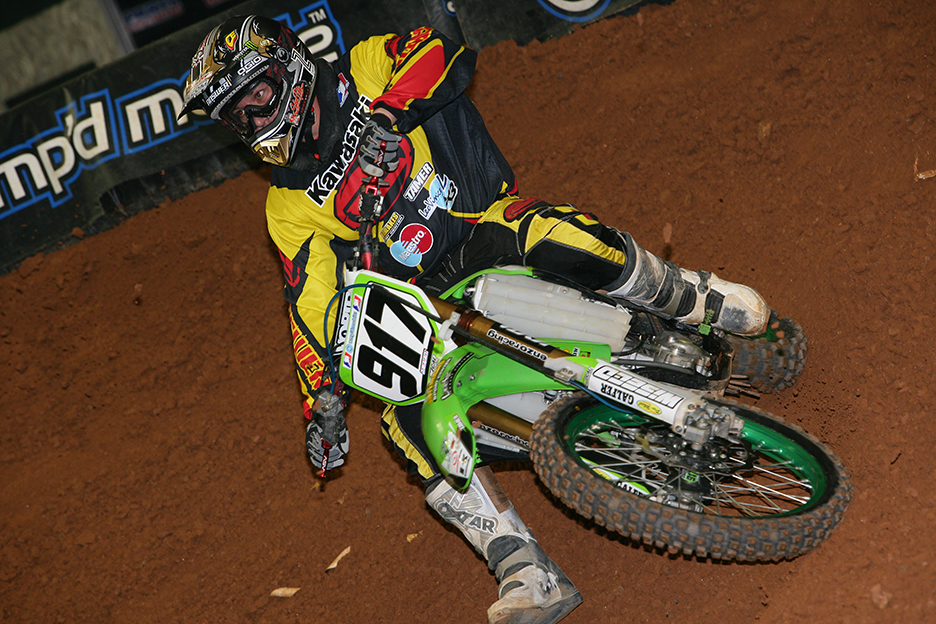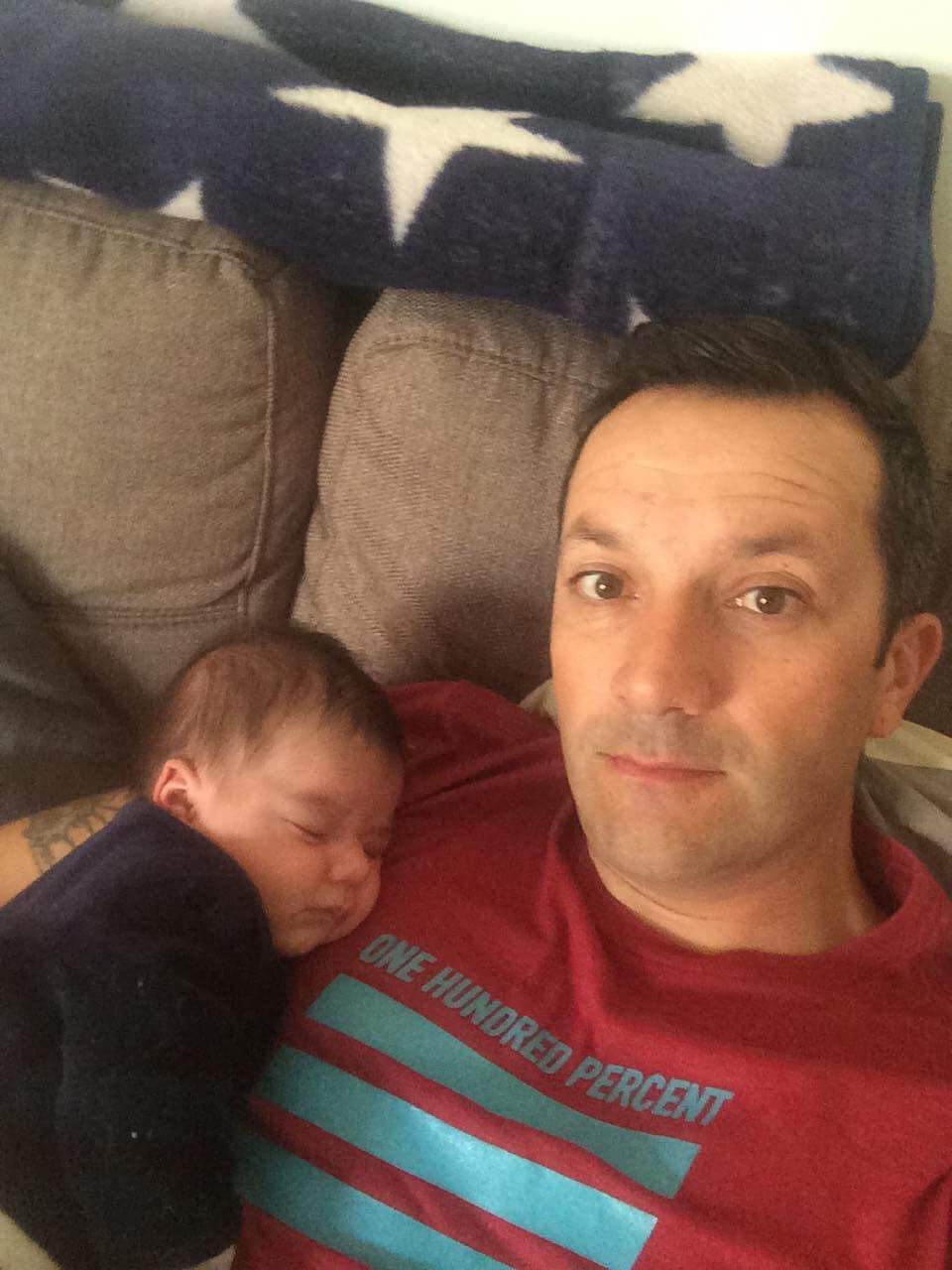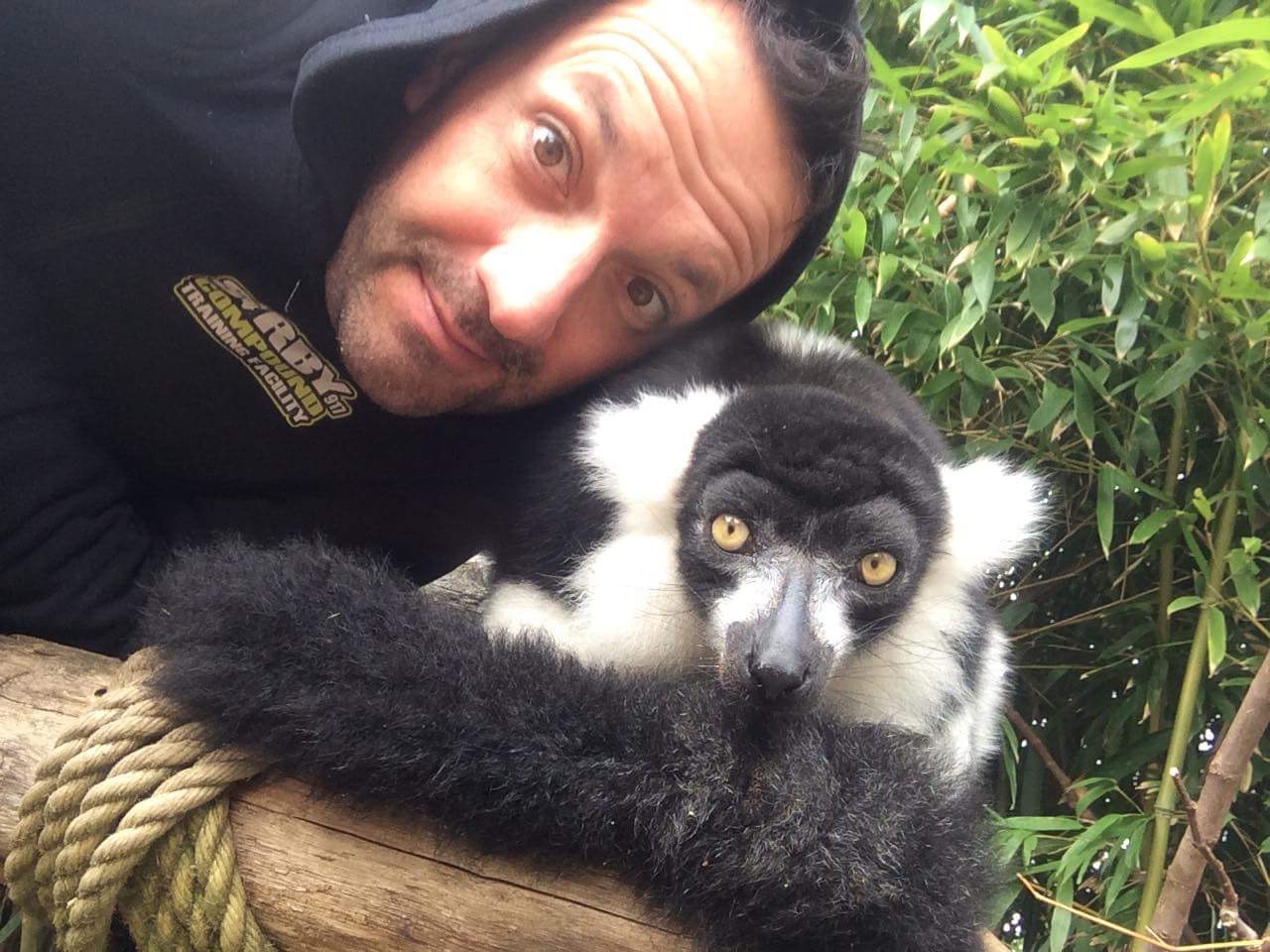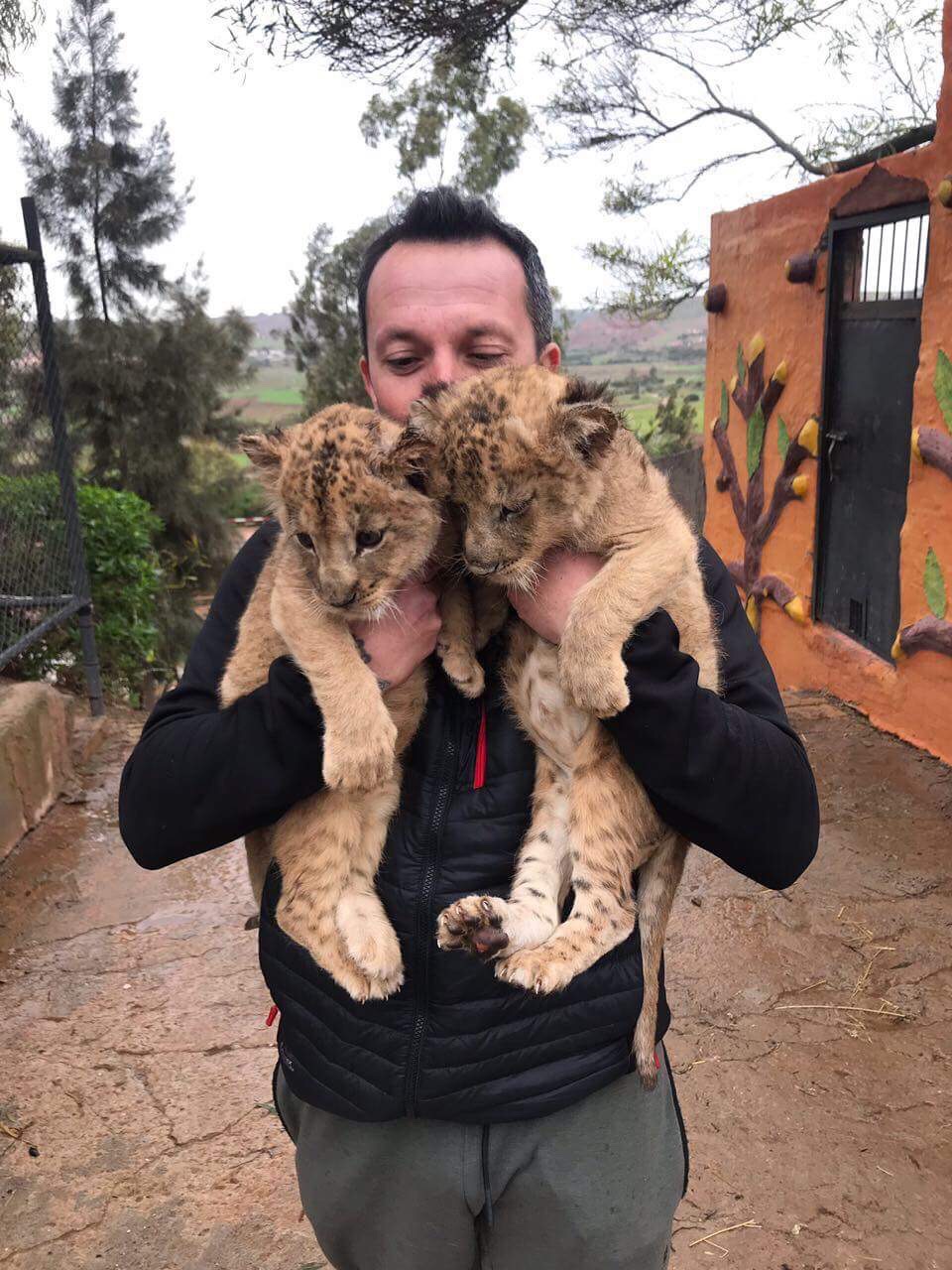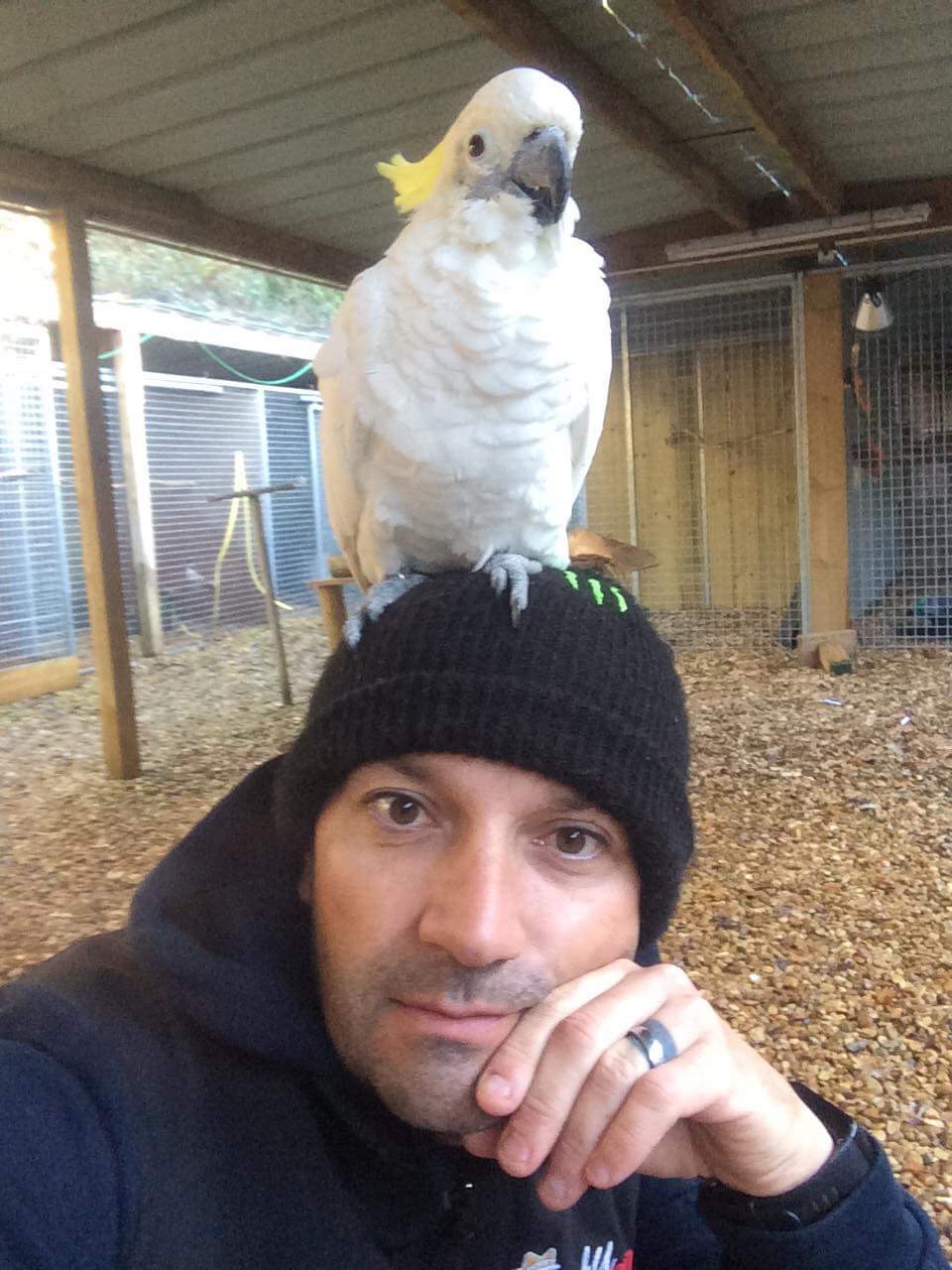Eric Sorby is no stranger to controversy. The Frenchman arrived in United States in 2002 after earning a ride with Mitch Payton’s Pro Circuit team. Sorby quickly earned himself a reputation as a very aggressive and outspoken rider. Love him or hate him, the record books show Sorby earned an impressive 12 podiums while racing in America.
But Sorby is perhaps better known for his role later in his career, where he served as a friend, trainer, and advisor to several top riders, including James Stewart, Josh Hansen, JGR Racing, and Justin Barcia. He made regular appearances on Bubba’s World, the pseudo-reality TV show that followed Stewart and his entourage around the country for two seasons.
Sorby left the United States in 2012 and moved back to Europe. Today, he is living on the Island of Corsica and is still as open and outspoken as he was during his time in America.
Racer X: It’s been a long time since we’ve seen you here in the U.S., perhaps since the days of Bubba’s World.
Eric Sorby: Actually, I quit working for James in 2012. I decided to move back to France to be where I’m from and to spend more time with my family. Since I was a kid, I’ve been racing, and I’ve been on the road every weekend. I moved to the USA and stayed there for 12 years, which is great. I love that country. I miss a lot of people in the motocross industry. This country did so much for me and for my life. So, I already miss America, but I had to move back to Europe.
What are you up to now?
Actually, I’m coaching some young riders. I train a few kids who are riding the 85 and 65 bikes. This year I’m going back to the GPs. I’m going to help a young woman from Belgium named Verstappen Amandine. She is riding the women’s GP class this year. I’m going to be with her for the full season and at every event. That’s pretty much it for motocross. And right now I live in Corsica. It’s a French island in the Mediterranean and is located between France and Italy. It’s really beautiful here. On the island, I have a bird breeding company, which is way different than what I was doing before. I breed rare and exotic birds, like parrots.
Wow, that’s certainly something very different! How did you get into that?
I know! I breed them, train them, and then sell them. But for me, I’ve always been into animals. I have at home a dog, cat, monkey, kangaroos, ostrich, and over 100 birds. I have like a zoo at home. When you’re a professional athlete like motocross or bicycle, you have a different life than everybody else. When you retire and when you stop everything, it’s a shock. Most of the people, they get into drugs, which I was into drugs when I stopped racing in 2010. I was started taking Vicodin, and after Vicodin, I was taking some other crap. It was really hard on me. I didn’t really know what to do because I wasn’t racing. It’s hard to explain. A lot of athletes get into drugs. So, I decided to move back to France and to give all my energy—like I was doing when I was racing—and I decided to spend time with the animals. That’s how I got into birds and monkeys and all the animals I have now.
How did you end up on Corsica?
I just decided to come here because it’s a beautiful island. Now I’m here. Maybe in two years I will be in a different place, I don’t know. I’m not going to stay in one place all my entire life, I know that. Life is too short to do the same thing every day.
Corsica is a pretty isolated place. How is the local motocross scene on the island?
They actually have a few motocross tracks here on the island. And I have a little compound here where I train some kids every Wednesday, Saturday, and Sunday when I’m not gone to a race. The island has a motocross championship, also, which is really small. It’s a different life. My life is really chill. Like I said, I spend like 95 percent of my time with all my animals. I went to a bunch of different zoos as a student to learn how to breed and learn how to feed them and how to train them and all this kind of stuff. It was really hard to find something to be occupied with every day and to give all my energy to. When you race, you go ride every morning. You train every afternoon. You travel every weekend. You do that for five years, ten years. When you retire, your life is dead. You know it and everybody else knows it.
There’s something in America where people get addicted to drugs so quickly, and you can see it in a lot of top riders. The old story, you know, Austin Stroupe, Jason Lawrence, and Nico Izzi. I don’t blame them where they are now, because America, it’s really easy to get these kind of drugs and everybody has a pill in his pocket over there. When you take one, you feel like life is perfect. When it’s gone through your system, you need more and more and more. It happens so fast. I won’t name some other top riders where now we don’t see them anymore and I know they are into drugs. It’s bad. So that’s why. In Europe, it’s different. Don’t get me wrong—I love America. I miss America. But for me, it was time to move back to France because I was getting really bad and I didn’t want to end up in an even worse position.
Let’s change gears here and talk about your time racing in America. What are some of your best memories?
My best memory is my 12 years that I spent in America. And that’s from day one to the last day. I was welcomed from everyone in the USA. I [got adopted by] you guys, actually. I was someone easygoing. A lot of people know me from the industry and were good to me. I was open to everyone. But you know, I was a dickhead on the track. We have a lot of stories on the racing day, but my memories in USA was, those 12 years were really good. I have a lot of podiums. I had like six podiums [in] supercross and I had six podiums in outdoor motocross. I won some races. I raced three or four times at the X Games—supercross and supermoto. Actually, I did the EnduroCross twice as well. Also, when I stopped racing and when I was working for James, I have very good memories of the reality TV show. Being around the Stewart family was badass. I became really good friends with James right away in 2002 until 2012. And I was living with him for three years when I retired in 2009. It was great and I still talk to them. I talk to Bubba once every few weeks, and I still talk to my other contacts in the USA every day. It was great to be over there for those 12 years, and I miss it, but my life is here now.
Okay then, I can’t resist—you beg the inevitable question: From your interpretation, what do you think is going on with James?
We all know James. He’s someone different. He’s always been quiet. He’s always been unique; when he doesn’t want to talk to anyone, he doesn’t. I know him really, really well. I know him maybe almost as well as his parents. That’s James. We know he’s done. He doesn’t say he’s retired, but obviously he is. Maybe he doesn’t want to accept it. He doesn’t want to say, but that’s how it is. We have to respect his choice. Maybe he should say he’s retired, but that’s James. He’s different. Like I said, we’ve got to respect his decision. He’s someone when he will be on the starting gate, he was always 110 percent. He always tried to win, no matter what. So, he’s the one who made the racing really, really fast. He’s the one who brought a lot of technique to supercross and motocross. That’s him. Maybe if he says he’s retired, we’re going to forget about him. But now he doesn’t say anything, so every month, where is James? We still talk about him. Maybe in ten years he’s going to say he’s retired, but I like it like that.
You spent some time training toward the end of your time in the U.S., right? You were with JGR, then the Stewarts, and maybe with Barcia. What ultimately led you to go back to France? Was it the drugs like you talked about, or what was it?
Yeah, it was kind of the drugs thing. It was how to stop all those stupid pills. So that’s why. I said, if I stay here I’m going to do more and more and more and I’m going to end up bad. I know me. When I do something, it’s the full thing or nothing. I was with James. Barcia, actually, he came to the compound when I was over there, so we became friends. Every time he’d come to Europe, I would go with him and help him out. Actually, in USA, I was with Bubba. I worked for JGR. Also, when Weston Peick was a privateer, I worked for him for one year when he was in California. No one really knows, but I was with him for almost a year.
Are you still following the supercross in America?
Every weekend. I wake up at 2 in the morning and watch it. It’s in my blood. I will follow until I die.
What do you think of this season’s results?
This year like every other year, there’s a lot of hype at the beginning of the year with a lot of top guys and some that get hurt. Before it was Ricky [Carmichael], Chad [Reed], Bubba, [Kevin] Windham, and just getting hurt and there will end up two top guys at the end of the year. Two top guys to win the championship. This year [Ken] Roczen got hurt and after that, [Marvin] Musquin, I think, dislocated his shoulder or something like that. Now [Jason] Anderson is leading, but [Eli] Tomac is winning some races. Maybe Anderson is going to have some better weekends and Tomac is going to catch him in the championship. They’re going to end up to get the championship in Vegas. I don’t think anything different this year than the other years. Every year there’s five top guys, and there’s always two or three that get hurt. Since we don’t have James anymore, we don’t see a lot of quad and quad on the track. We need that guy, but it’s done.
He certainly set the pace for doing things differently and going extremely fast.
That kid could have won a lot of championships, but him winning a race by one second, it’s not winning. It was winning by 20-40 seconds, or crashing. So, we can’t blame him. It’s Bubba. Ricky tried to win by two seconds. He won a lot of races and a lot of championships. [Ryan] Dungey was getting on the podium every weekend to win a lot of championships. That’s great. He won a bunch of championships. Not a lot of races, but championships. You have a lot of different riders and you have to take the difference of the rider and we have to respect the decision of everyone. It is what it is.
What about your personal life? Are you married? Do you have any kids?
I’m not married, but I have had a girlfriend for almost six years. We just had a baby boy a month and a half ago. He’s going to race with Bubba’s son in 15 years!
Did you make good money while you were racing?
Yeah, I did make good money at the beginning when I was working for Mitch. I made good money, but I made some wrong choices buying some stuff over there. You know, the house and some cars. But you have to understand, I came from nothing. I came to America with $2,000 in my pocket. That was all I had. Nine months later, I was making $100,000 a year. So, I did enjoy life and no regrets. I was making good money, but I spent all of it. When I was working for Mitch, I think in three years, I made almost a half million, which was good back then. I made half a million, but then I bought a house.
Looking through your results, it seemed like you always did well at High Point in Pennsylvania. What was the deal with that place for you?
Yeah, exactly. The first years, I podiumed there every time. The first year, I think I got fifth and third, but the second year I got third and third behind Ryno [Ryan Hughes] and Mike Brown. It was a good track. I also liked the Houston Supercross; I had two or three podiums over there, also. I podiumed in Anaheim as well. Then I almost won Vegas in 2003, but the bike blew up with five laps to go.
Well, I am going to wrap this up. Any closing words?
I want to thank the American industry people. They were great to me. Special thanks Mitch Payton, of course. The Bubba family. The Barcia family. Dave Prater [of Feld Motor Sports]—someone who was great to me when I was over there. I know he’s someone still in the industry. There’s so many people that I can’t thank enough for everything. JGR and some of my friends over there. Josh Hansen, he was crazy, but he got a little girl and she’s like now his team manager and he’s being quiet. Everybody. Even Travis Preston!



